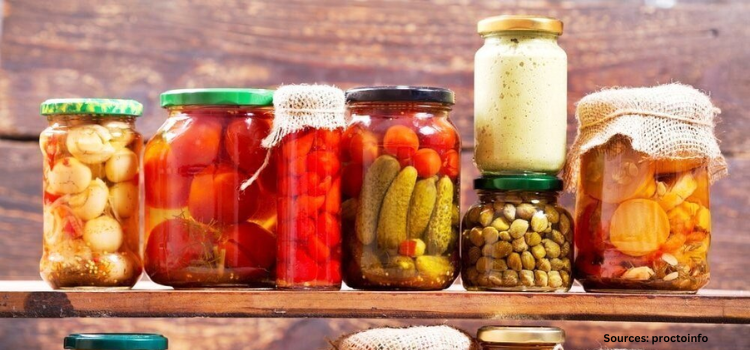
Organic Food and Vegetables Market by Product Type (Organic Fruit and Organic Vegetable), by Form (Fresh, Pureed, Frozen, Powdered, and Others), by Distribution Channel (Supermarkets, Hypermarkets, Convenience Stores, Online Sale Channels, and Others), and by End User (Residential, and Commercial) – Global Opportunity Analysis and Industry Forecast 2023–2030
US Tariff Impact on Organic Food and Vegetables Market
Trump Tariffs Are Reshaping Global Business
Market Definition:
The global Organic Food and Vegetables Market size was valued at USD 46.53 billion in 2022 and is predicted to reach USD 85.89 billion by 2030 with a CAGR of 7.9% from 2023–2030. Organic food and vegetables are the foods that are cultivated through farming practices that only use natural substances from pre–harvesting to post–harvesting. These products are produced without the use of synthetic fertilizers, herbicides, and other harmful chemicals such as pesticides, hormones, antibiotics, and genetically modified organisms (GMOs).
Organic products are rich storehouses of minerals such as antioxidants and antibiotics and provide numerous health benefits including improved heart condition, strong immunity, and antibiotic resistance. Thus, with the growing focus on health, organic fruits and vegetables are becoming an essential part of people’s daily food consumption.
Market Dynamics and Trends
The demand for organic food and vegetables is increasing due to the rise in consumer awareness towards organic food and vegetables. The growing awareness of healthy lifestyle among the larger section of the population, growing fitness trends, and a shift toward healthy product consumption such as organic fruit & vegetable, juice & syrups over other confectionary foods is expected to boost the growth of the market.
Moreover, the government is taking constructive steps and encouraging farmers to practice organic farming with no additives or preservatives is expected to further accelerate the growth of the organic food and vegetables market. For instance, the government of Denmark announced the visionary goals for organic farming with USD 491 million of funding to make Denmark a 100% organic farming country by the year 2030.
The increasing number of chemical poisoning cases in different parts of the world has contributed to the growing demand for the organic food. Consumers are becoming more aware of the potential risks associated with conventional farming practices that involve the use of synthetic pesticides, herbicides, and fertilizers. As organic food is produced without these harmful chemicals which has led to a shift in consumer preferences towards organic products.
For instance, in May 2022, the World Health Organization (WHO) published a report stating that approximately 600 million individuals, which accounts for nearly one in ten people globally, experience illness as a result of consuming contaminated food. For instance, in May 2022, the World Health Organization (WHO) published a report stating that approximately 600 million individuals, which accounts for nearly one in ten people globally, experience illness as a result of consuming contaminated food.
However, the high production cost that raises the final retail price and the short shelf life of organic products are some of the major factors restraining the growth of the organic food and vegetable market. On the contrary, the increasing use of organic fruits and vegetables as a natural ingredient in the personal skincare & beauty care industry and the rising demand for ready–to–use products such as organic plant food, cereal, coconut oil, and others create ample opportunities for the organic food and vegetable market.
For instance, in March 2023, Fruit Works launched a range of beauty products that harness the power of natural ingredients derived from fruits and plants. With a focus on sustainability, the brand promotes the use of organic materials in the skincare industry.
Market Segmentations and Scope of the Study
The organic food and vegetable market share is classified on the basis of product type, form, distribution channel and end user. On the basis of product type, the market is segmented into organic fruit and organic vegetable. The organic fruit is further sub–divided into banana, apple, berries, grapes, kiwi, and others. The organic vegetables are further classified into leafy vegetables, tomato, potato, and others.
On the basis of form, the market is segmented into fresh, pureed, frozen, powdered, and others. On the basis of distribution channel, the market is classified into supermarkets, hypermarkets, convenience store, online sale channel and others.
On the basis of end–user, the market is divided into residential and commercial. The geographic breakdown and analysis of each of the aforesaid segments include regions comprising of North America, Europe, Asia–Pacific, and RoW.
Geographical Analysis
North America holds the dominant share of the global organic food and vegetables market trends and is expected to continue dominating the market during the forecast period. This is attributed to factors such as the growing number of health–conscious consumers shifting their food choice priorities and focusing on consuming healthier foods that are environment friendly.
According to the Organic Trade Association (OTA), the U.S. organic foods and vegetables sales reached at USD 62 billion in 2020, as foods with organic and natural labels are witnessing an increased demand compared to other conventionally grown food products, including fruits and vegetables in 2021.
Furthermore, the presence of key market players such as Sprouts Farmers Market Inc., General Mills Inc., The White Wave Foods Company, and others play a major role in the growth of organic food and vegetables market in this region. For instance, in October 2022, Sprouts partnered with Koita to import Koita’s organic food in their supermarket chain in the 380 different locations in the U.S.
On the other hand, Asia Pacific is expected to show a steady rise in the organic food and vegetables market for the forecasted period as companies are extensively focusing on advanced technologies such as blockchain and artificial intelligence to promote healthier food options while further supporting other organic brands operating in this industry.
For instance, in November 2020, Integrated Management Systems (IMS) introduced OrgHive, application developed to assist Chinese consumers in making healthier food choices that supports organic brands catering the mainland Chinese market. This application uses blockchain technology to enhance transparency and reliability to shoppers concerned about the safety and origin of food products.
Moreover, the presence of top agriculture–based countries such as India and China are steadily becoming the capital of organic crop production and consumption and the favourable government policies further boost the growth of organic food and vegetables market.
According to Ministry of Agriculture, the export of Indian organic produce grew by 25% in 2022, reaching a value of USD 2.4 billion. The top export destinations for Indian organic produce include the United States, the European Union, and Japan. The data also states that on an average, India’s organic product export is valued at USD 827 million every year.
Competitive Landscape
The organic food and vegetable market comprises of various major market players such as Sprouts Farmers Market Inc., General Mills Inc., Green Organic Vegetables Inc., Z Natural Foods LLC, Whole Foods Market, Organic Valley, Dole Food Company Inc., Nature’s Path Foods, Eden Foods, Driscoll's, Inc., Oppy, United Natural Foods, Inc., The Kroger Co, Horizon Organic, The Hain Celestial Group, Inc., and others. These market players are adopting various strategies such as partnership agreements across various regions to maintain their dominance in the organic food and vegetables market.
For instance, in February 2022, Sprout Organics collaborated with CoComelon to feature kid’s favourite characters from streaming platform in the form of wholesome snacks made with real, organic ingredients. Also, in June 2020, Danone North America (The White Wave Foods Company) partnered with Brightseed to profile key plant sources to reveal previously unknown health and nutrition benefits by using unique AI–powered approach. The partnership is aimed to identify potential new molecular connections between certain compounds present in Danone’s raw soy and newfound health benefits.
Key Benefits
-
The report provides a quantitative analysis and estimations of the organic food and vegetable market from 2023 to 2030, which assists in identifying the prevailing market opportunities.
-
The study comprises a deep dive analysis of the current and future organic food and vegetable market trends, depicting prevalent investment pockets in the market.
-
Information related to key drivers, restraints, and opportunities and their impact on the organic food and vegetable market is provided in the report.
-
Competitive analysis of the key players, along with their market share is provided in the report.
-
SWOT analysis and a Porter's Five Forces model is elaborated on in the study.
-
Value chain analysis in the market study provides a clear picture of the roles of stakeholders.
Organic Food AND Vegetable Market Key Segments
By Product Type
-
Organic Fruit
-
Banana
-
Apple
-
Berries
-
Grapes
-
Kiwi
-
Others
-
-
Organic Vegetable
-
Leafy Vegetables
-
Tomato
-
Potato
-
Others
-
By Form
-
Fresh
-
Frozen
By Distribution Channel
-
Supermarkets
-
Hypermarkets
-
Convenience Store
-
Online Sale Channel
-
Others
By End User
-
Residential
-
Commercial
By Region
-
North America
-
U.S
-
Canada
-
Mexico
-
-
Europe
-
UK
-
Germany
-
France
-
Italy
-
Spain
-
Denmark
-
Netherlands
-
Finland
-
Sweden
-
Norway
-
Russia
-
Rest of Europe
-
-
Asia–Pacific
-
China
-
Japan
-
India
-
South Korea
-
Australia
-
Indonesia
-
Singapore
-
Taiwan
-
Thailand
-
Rest of Asia–Pacific
-
-
RoW
-
Latin America
-
Middle East
-
Africa
-
Key Market Players
-
Sprouts Farmers Market Inc.
-
General Mills Inc.
-
Green Organic Vegetables Inc.
-
Z Natural Foods LLC
-
Whole Foods Market
-
Organic Valley
-
Dole Food Company Inc.
-
Nature’s Path Foods
-
Eden Foods
-
Driscoll's, Inc.
-
Oppy
-
United Natural Foods, Inc.
-
The Kroger Co
-
Horizon Organic
-
The Hain Celestial Group, Inc.
REPORT SCOPE AND SEGMENTATION:
|
Parameters |
Details |
|
Market Size in 2022 |
USD 46.53 Billion |
|
Revenue Forecast in 2030 |
USD 85.89 Billion |
|
Growth Rate |
CAGR of 7.9% from 2023 to 2030 |
|
Analysis Period |
2022–2030 |
|
Base Year Considered |
2022 |
|
Forecast Period |
2023–2030 |
|
Market Size Estimation |
Billion (USD) |
|
Growth Factors |
Rise in consumer awareness towards organic food and vegetables. Government initiatives towards organic farming with no additives or preservatives. Increasing number of chemical poisoning cases. |
|
Countries Covered |
28 |
|
Companies Profiled |
10 |
|
Market Share |
Available for 10 companies |
|
Customization Scope |
Free customization (equivalent to up to 80 working hours of analysts) after purchase. Addition or alteration to country, regional, and segment scope. |
|
Pricing and Purchase Options |
Avail customized purchase options to meet your exact research needs. |

















 Speak to Our Analyst
Speak to Our Analyst





















